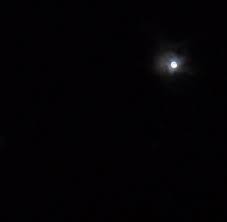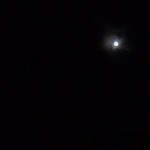In the text describing the creation of the world we read “And there was evening and there was morning.”(Genesis 1:5).Why does darkness always precede the light?
In the Torah portion of Vayishlach we note that everything regarding the story of Yosef ( Joseph) becomes a dual level narrative. There is the pshat (revealed text ) and story and yet behind every word and event the narrative of destiny of the Jewish people is told as well.
When we read of the dangerous sibling rivalry developing between Yosef and his brothers we read; “So his brothers envied him, but his father awaited the matter (Shamaf Et HaDavar )(Genesis 37:11) What “Davar ” was Yaacov keeping to himself?
The word Davar is often used as a description of a prophetic word. We see that in the book of Jeremiah, “The word (HaDavar) that came to Jeremiah from Hashem” ( Jeremiah 21:1).We see it as well in the book of Daniel ;”in the first year of his reign I Daniel meditated in the books, over the number of the years, whereof the word (Davar) of Hashem came to Jeremiah the prophet, “(Daniel 9:2).
On one level Yaacov was angry at his son for dreaming dreams of grandeur,
” and his father rebuked him and said to him, “What is this dream that you have dreamed? Will we come I, your mother, and your brothers to prostrate ourselves to you to the ground?”( ibid 37:10) . Yet on the other hand Yaacov understood that the dream of Yosef carried great spiritual impact and eternal relevance,
” but his father awaited the matter (Et HaDavar )(ibid 37:11) .
When Yaacov sends him out to his brothers on that ill fated mission we read that not Yaacov but rather ” Israel said unto Joseph: ‘Do not thy brethren feed the flock in Shechem? Come, and I will send thee unto them.” It is not the name Yaacov that is used but rather the more spiritual- destiny focused name of Israel that is used.
Yaacov then answers ‘Here am I-Hineni.(Genesis 37:13). That word is not simply an agreement to respond , but rather bespeaks of a spiritual commitment to move into the unknown journey of destiny. That word “Hineni”is used with Avraham (Genesis 22:1), Yaacov ( ibid 31:11),Moshe (Exodus 33:4), Samuel (1 Samuel 3:1-10) and with Isaiah (Isaiah 6:8) to denote a deep spiritual commitment.
It is only after that higher level of spiritual discourse is ended ,that Yaacov repeats the more natural earthly bound request :” So he said to him, “Go now and see to your brothers’ welfare and the welfare of the flocks, and bring me back word.” ( ibid :14).
The unusual encounter with the Eesh-man ,that hints of an angel , then produces another destiny based declaration from Yosef “.Et Achai Anochi Mevakesh .., “I am looking for my brothers(ibid:16). Even the story of the disenchanted Yehuda ( Judah) and Tamar further in the Torah portion sets the stage for end time destiny.
Yet if all this bespeaks a destiny based narrative that directs the Jewish people forward ,why must that journey go through the frightening lows of sibling hatred and malicious scheming. Why do the Jewish people need to descend into Egypt and slavery before they are to become the people of G-d’s story? Why does this plan of destiny descend into such valleys of despair , pain and loss before it truly unfolds. Why does darkness have to precede the blossoming of light?
In truth, without darkness one cannot perceive light. In fact in places in the world wherein there is too much light and glitter , “true light” becomes lost and hidden. The prophet Isaiah says “And I will give you the treasures of darkness, and hidden riches of secret places, that you may know that I am Hashem, who calls you by thy name, even the G-d of Israel.( Isaiah 45:3 ). The prophet describes the “treasures of Darkness” because darkness enable us to percieve the knowledge that” that I am Hashem, who calls you by thy name, even the G-d of Israel ”
Isaiah again says ” I form (Yotzer)the light, and create ( Boreh)darkness; I make peace, and create evil; I am Hashem, that does all these things.”( ibid:7). To” create” is to create ex-nihilo- something from nothing. To”form” is to refashion from what was. In fact it would be correct to assume that G-d’s supernal light always existed, and that darkness was created later.
Darkness was created to help define light. This quote attributed to Anne Frank experiencing the horrors and darkness of the holocaust intuitively reiterates the thought, “Look at how a single candle can both defy and define the darkness.”
G-d’s plan of destiny seems to necessitate the wilderness before the blessing, the journey before the destination. As our sages teach “”Ki kohl yerida hi tzorech aliya.”. That is to say, “Every descent is for the purpose of ascending higher “.
Reb Shlomo Carlebach once related an old Hassidic teaching that a verse in psalm 126 can be punctuated differently and as a result would be understood differently. The verse “They that sow in tears…. in joy shall reap ” (psalm 126:5),could actually be read with the comma in a different place. That is to say, “They that sow in tears, in joy…. shall reap . The wilderness that Hashem sometimes sends us into must be embraced with joy in the midst of tears ,because in the end that wilderness can become the source and the beginning of blessing.
LeRefuat Yehudit Bat Golda Yocheved

